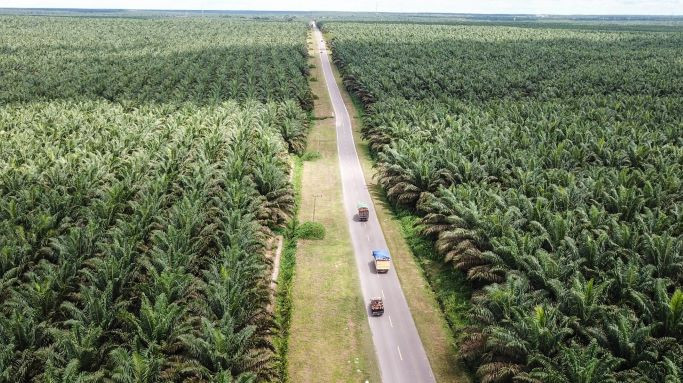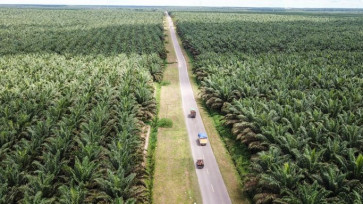Popular Reads
Top Results
Can't find what you're looking for?
View all search resultsPopular Reads
Top Results
Can't find what you're looking for?
View all search resultsTime for Indonesia to forget European palm oil market
The persistent negative campaign against palm oil by the European Union has inculcated a perception that palm oil is one of the main drivers of deforestation in tropical countries.
Change text size
Gift Premium Articles
to Anyone
P
alm oil was one of the edible oils most widely discussed and debated at the Group of 20 sustainable vegetable-oil conference in Bali early this month, and again at the COP27 climate summit in Egypt on Nov. 6-18. That commodity will again be in the spotlight at the 2022 Round Table on Sustainable Palm Oil (RSPO) Conference in Kuala Lumpur on Nov. 28-Dec.1.
There are two main reasons. One is that palm oil has a very wide versatility and is quite ubiquitous. According to the World Wildlife Fund, palm oil is found in more than half of the packaged products American and European consumers use, including ice cream, lipstick, soaps and detergents. CABI Agriculture and Bioscience estimated global palm oil production at 81 million tons a year or as much as the combined global output of soybean and rapeseed oil. Palm oil also accounts for 40 percent of traded vegetable oils.
The other reason is that the persistently negative campaign by the European Union against palm oil has inculcated a perception that palm oil is one of the main drivers of deforestation in tropical countries. The bashing seems to have succeeded in building up a very negative perception among a large number of consumers in Europe and the United States. Palm oil often immediately reminds people of deforestation.
In an attempt to improve the market image of palm oil, ministers from 10 African countries signed at the COP27 a declaration on Africa Sustainable Commodities Initiative Declaration (ASCI) for all farm crops. ASCI supplements the Africa Palm Oil Initiative, which was launched in 2016. It was a sustainability forum like the RSPO set up in 2004 and Indonesian Sustainable Palm Oil and Malaysian Sustainable Palm Oil, both in 2011.
Four of Indonesia’s largest palm oil groups joined 10 other food commodity conglomerates from around the world in the launch of an agricultural road map to climate action during the COP27 conference.
But despite all the renewed commitments and sustainability efforts, the EU continues to take unilateral action against what it classifies as deforestation. The EU Parliament has voted for a deforestation regulation, which will require all food products to be certified as free from deforestation. Even though the European Commission has postponed a final decision on the regulation to mid-2023, the food deforestation labeling will likely be implemented in 2023.
The regulation certainly will adversely affect the marketing of palm oil products from such developing countries, notably Indonesia, the world’s largest producer, with nearly 53 percent of the global palm oil output, due to the complex and elaborate due diligence and bureaucratic documentation needed in the certification process. This complexity does not yet take into account the different definitions of deforestation in the developing countries and advanced economies.



















